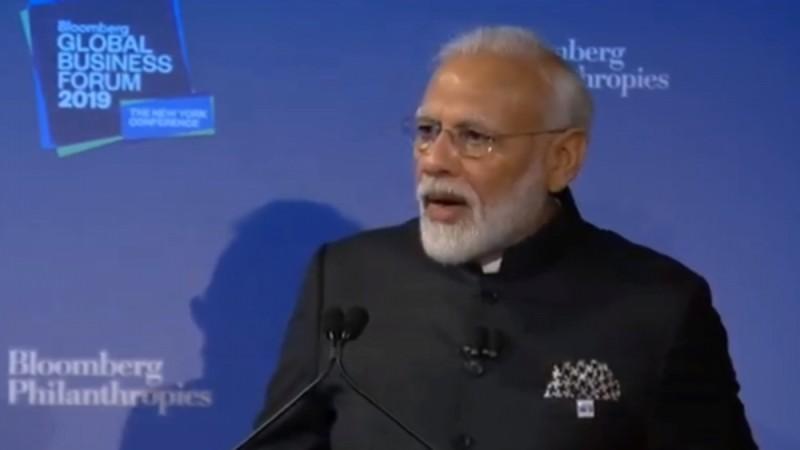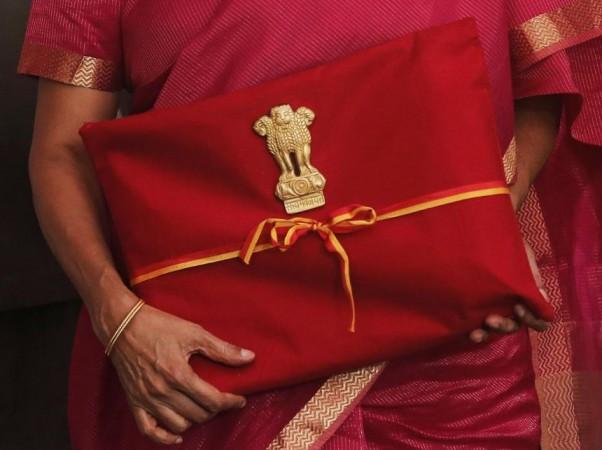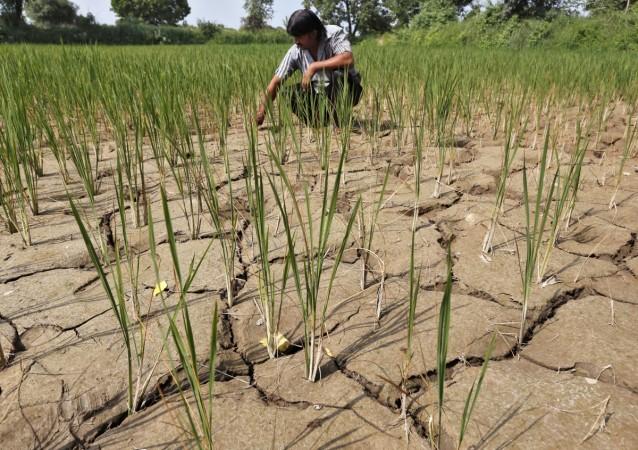The Budget session, the third of 17th Lok Sabha and the first of 2020, is set to be held in two phases — from January 31 to February 11 and from March 2 to April 3.

Prime Minister Narendra Modi asserted that the Budget Session of Parliament would try to establish a base for the bright future of this decade and economy would be the centre of discussion.
PM Modi's remarks came before President Ram Nath Kovind's address to the joint sitting of Parliament at 11 am, a routine affair before the beginning of a new session.
Speaking at the start of the Budget Session of Parliament. https://t.co/CIMbUsXOVV
— Narendra Modi (@narendramodi) January 31, 2020
'Focused on economic issues'

"This is the first session of 2020. This is also the first session of this decade. Our efforts should be to establish a strong base for the bright future of this decade in this session," PM Modi told media in Parliament premises ahead of the start of the session.
He said that this new year's budget will be presented on Saturday, February 1 and the discussion in this session will be mostly "focussed on economic issues".
"It will be focussed how India can get the benefit from the world economic situation to make the country's financial condition even more strong. It will be focussed how India could get the maximum benefit from the world economy."
Referring that his government's priority has been to empower Dalits, backwards and women, the Prime Minister said the focus will be in that direction in this decade too.
"I want that there should be an extensive discussion on the empowerment of the people in this budget session. There should be a good productive discussion."
Fund allocation to PM Kisan scheme may be cut by 20%

The agriculture ministry has requested 20 per cent lesser funds for Pradhanmantri KISAN scheme that disburses farmers Rs 6,000 a year, for the coming financial year.
The ministry has attributed the reason to slow development in identifying beneficiaries. Moreover, many existing recipients are yet to be verified through their Aadhaar.
For FY21, the ministry has sought Rs 60,000 crore for the Pradhan Mantri Kisan Samman Nidhi Yojana as against Rs 75,000 crore for this year reported the Economic Times.
One of the other reasons for the slash in funds is that in running fiscal the government has only managed to Rs 44,000 crore under this scheme.
The agriculture ministry has requested 20 per cent lesser funds for Pradhanmantri KISAN scheme that disburses farmers Rs 6,000 a year, for the coming financial year.
The ministry has attributed the reason to slow development in identifying beneficiaries. Moreover, many existing recipients are yet to be verified through their Aadhaar.
For FY21, the ministry has sought Rs 60,000 crore for the Pradhan Mantri Kisan Samman Nidhi Yojana as against Rs 75,000 crore for this year reported the Economic Times.
One of the other reasons for the slash in funds is that in running fiscal the government has only managed to Rs 44,000 crore under this scheme.
States refuse to implement scheme
As per government's plan, more than 145 million beneficiaries were targeted but only 95 million farmers have been registered under the scheme of which 75 million have been verified through their Aadhaar.
Last month, agriculture minister Narendra Singh Tomar has said that 20 million registered farmers will get the benefits only after their identities will be proved with Aadhaar-authenticated bank accounts.
Some of the states have refused to implement the scheme including West Bengal as they announced zero beneficiaries.
Bihar has managed to identify only one-third of its farmers due to lack of digital data. Further, Madhya Pradesh, Rajasthan, Maharashtra, Andhra Pradesh and Karnataka have only identified 55-60 per cent of their farmers.
One of the officials related to the development said, "We have asked for a more realistic budget based on our existing database and potential beneficiaries.
We have to depend on state governments to verify the beneficiaries before we can transfer instalments."
Notably, the scheme was launched in February 2019 that covers small and marginal farmers having up to two hectares of land. In the last financial year, Rs. 6000 crores was disbursed directly into the beneficiaries account out of total budgeted Rs 20,000 crore.
After its victory in 2019, the Modi government gave some relaxation in landholding criteria, making the scheme open for large farmers as well.
Experts argued that the scheme has benefitted the farmers. PK Joshi, a fellow at National Academy of Agricultural Sciences said, "We conducted a study where we found that money of PM-KISAN was used in buying fertilisers when it was disbursed before the sowing season."















